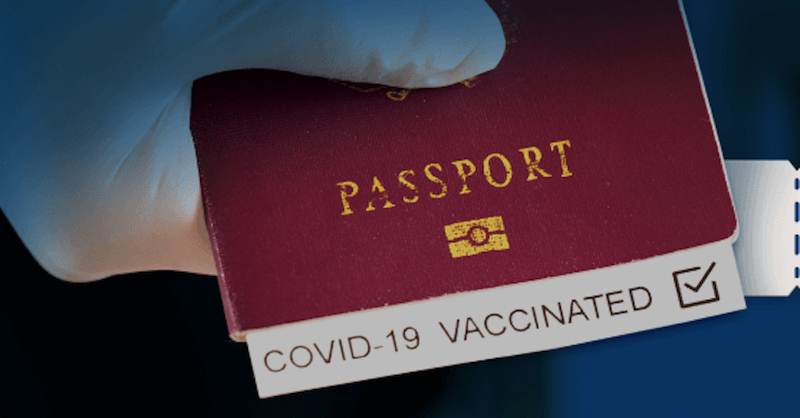“What brings you in today?” “Do you smoke?” “How many beers do you typically have in a week?” Collecting a patient’s basic medical history is a normal part of your routine visit, and feeling ashamed to discuss these topics is also normal. But our discomfort with these types of questions can make it easy for little white lies to slip out of our mouths.
So, have you ever lied to your doctor? If your answer is yes, don’t worry, you’re not alone. Even though honesty is the best policy—for some patients, it’s hard to abide by. Let’s explore the nature of fudging the truth and the trust (or mistrust) in the doctor-patient relationship.
Methodology
To find out how often patients lie to their medical providers, we ran two surveys asking people to rate how frequently they lie to their doctor on a scale of 1 to 5, 1 being never and 5 being very often. All those answers were averaged together to find out what states are the most and least likely to lie.
In all, we had over 3,000 people respond to our surveys. Respondents answered how comfortable they are talking to their doctor about certain topics, what they lie about most often, and the main reasons why they lie. Read on to learn how your state answers questions at their doctor’s appointments!
How Much Every State Lies to Their Doctor
ALT: A U.S. map displaying how often every state lies to their doctor
We asked people from every state how often they lie to their doctor on a scale of 1 to 5 (1 being never, 5 being very often). Using this scale, we can see that the southeastern United States is home to those who are most likely to lie to their doctors, with South Carolinians, Georgians, and Floridians telling us they lie to their doctors more often than the average American. Meanwhile, midwestern states such as Minnesota and Missouri tend to lie to their doctors the least.
The overall average answer to how often Americans lie to their doctor was 1.98 out of 5. That tells us that while most Americans don’t often lie, a need to fudge the truth a bit does occur from time to time. Now that we have a basis for how often lies are told, let’s find out which states lie to their doctor the most and least often.
States That Are Most and Least Likely to Lie to Their Doctor
ALT: A chart showing states most and least likely to lie to their doctor
The difference margins were so tight in terms of how truthful Americans are with their doctors that we had to create a tiebreaker to find the states most and least likely to lie. Ties were broken by looking at the percentage of respondents in each state who reported ever having lied to their doctor before.
As mentioned above, South Carolina is the state that is most likely to lie to its doctors. Other southern states that show up here include Mississippi, Florida, and Georgia. One surprise in the top 10 might be Hawaii, which came in second with an average answer of 2.18 out of 5. Each of the top 10 states that lie to their doctor most often had average answers above 2 out of 5, which means while they may not make a habit of lying to their medical professionals, they certainly will when they feel they need to.
On the other hand, Minnesota is the state least likely to lie to their doctors with fellow midwestern states Missouri, Kansas, and Illinois also among the most truthful with their doctors. The biggest surprise here could be that Nevada, home to Las Vegas, is among the top 10 states that lie to their doctors the least.
While there isn’t much difference between the states in how frequently patients lie to their doctors, you can see it does happen when you consider that even in the most truthful state, 58% of people said they have lied to their doctor before. But what makes us lie to our doctors? Let’s take a closer look at doctor-patient relationships to find out.
Analyzing Doctor-Patient Relationships
ALT: A series of charts showing what Americans most often lie to their doctor about
Think back to your last doctor’s appointment. How do you feel about your interaction? Would you say you trust your medical provider? 87% of Americans trust their doctor, but only 12% enjoy making the trip.
Almost half of Americans have never lied to their doctor. But when they do, the most-lied-about topic is mental health, with 27.4% saying they have lied about it to a physician before.
What else are people lying about? The survey found:
- 17.8% have lied about how much time they’re hitting the gym.
- 16.5% have lied about alcohol consumption.
- 15.9% have lied about their diet.
- 14.8% have lied about drug use.
- 13.3% have lied about sexual activity.
- 12.5% have lied about smoking.
Of course, these topics can be hard to open up about. Talking about certain subjects, like how many sexual partners you’ve had in the past year or how many glasses of wine you drink weekly can be uncomfortable. But the alternative to not telling the truth—an inaccurate diagnosis and potential health complications—is far more concerning.
65% of Americans are comfortable talking with their doctor about subjects dealing with alcohol and 62% are comfortable informing their medical provider about their drug usage, while only 44% are comfortable keeping them updated on their sexual activity.
Who are the most comfortable talkers? Older generations.
Both Baby Boomers (69.04%) and Generation X (59.11%) feel more comfortable talking to their doctor during appointments than Millennials (52.38%) and Generation Z (51.78%).
To dive into generational influences more, consider the following: what factors would someone feel uncomfortable with? For instance, it’s common for parents to accompany their children to their doctor’s appointments. 44.66% of Generation Z says having someone else in the room (parent/significant other) has caused them to lie to a doctor before, only 7.14% of baby boomers say the same thing.
Why Americans Lie to Their Doctor
ALT: A group of charts showing the most common reasons Americans lie to their doctor
The doctor’s office isn’t everyone’s favorite trip. 41.83% of Americans do not like going to the doctor. Part of the reason people may not like going is due to the uncomfortable questions we get asked and conversations we need to have. Being embarrassed to talk about your diet, exercise habits, or sexual activity can cause a doctor’s appointment to be pretty stressful.
One way to relieve that stress is by telling the doctor what we think they want to hear, so it should come as no surprise that the most common reason Americans lie to their doctors is simply embarrassment. Other common causes for withholding information are fear of judgment (33.8%) and avoiding a lecture on the importance of your health (32.5%).
There was virtually no difference between how often men and women tend to lie to their doctor, but the reasons why those lies are told is a different story. 37% of women say a previous experience with a physician has impacted how honest they are with their doctors, compared to 20% of men who felt the same way. That tells us that while shame is a driving force behind many of the lies we tell our doctors, trust is a two-way street. If patients don’t feel like they’re being heard, they may not see the value in being honest with their physicians.
To round out the survey, we asked Americans which doctors they are most likely to be dishonest with. Over half (53.9%) of respondents said they’re least honest with their general practitioner, followed by dentists (14%) and therapists (12.4%).
Closing Thoughts
Until you have a comfortable, honest relationship with your physician you won’t be getting everything you can out of your doctor’s visits, which is a shame when you consider the rising costs of healthcare for millions of Americans.
At USARx.com, we believe that transparency and trust are two linked principles that are of vital importance in the health and medical industry. If you’re one of the hundreds of millions of Americans who want to spend less money on their medications, search our marketplace to find coupons and special offers for your prescriptions today.
Owner, entrepreneur, and health enthusiast.
Chris is one of the Co-Founders of USARx.com. An entrepreneur at heart, Chris has been building and writing in consumer health for over 10 years. In addition to USARx.com, Chris and his Acme Health LLC Brand Team own and operate Pharmacists.org and the USA Rx Pharmacy Discount Card.
Chris has a CFA (Chartered Financial Analyst) designation and is a proud member of the American Medical Writer’s Association (AMWA), the International Society for Medical Publication Professionals (ISMPP), the National Association of Science Writers (NASW), the Council of Science Editors, the Author’s Guild, and the Editorial Freelance Association (EFA).
Our growing team of healthcare experts work everyday to create accurate and informative health content in addition to the keeping you up to date on the latest news and research.
How we built this article:
- Content Process
- Article History
Every piece of content we produce is meticulously crafted and edited based on the four core pillars of our editorial philosophy: (1) building and sustaining trust; (2) upholding the highest journalistic standards; (3) prioritizing accuracy, empathy, and inclusivity; and (4) continuously monitoring and updating our content. These principles ensure that you consistently receive timely, evidence-based information.
Current Version
2024-01-08
Fact Checked By
Chris Riley
2023-08-31
Reviewed By
Medical Team
2023-04-19
Written By
Chris Riley
Researched By
Chris Riley
Researched By
Camille Freking, M.S
VIEW ALL HISTORY +













